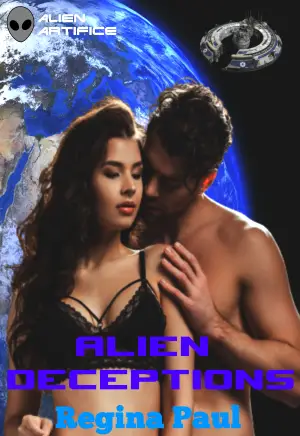Review of I, Starship
As an avid fan of science fiction, I’m always on the lookout for stories that not only push the boundaries of the genre but also delve into the human experience, even when it’s wrapped in layers of technology and extraterrestrial intrigue. When I stumbled upon I, Starship, I was instantly intrigued by its unique premise: a former Marine, Henry Morgan, whose life ends unexpectedly due to a flying lawnmower, only to awaken a century later as a reconstituted intelligence meant to pilot America’s first military starship. The blending of humor and high-stakes space opera was captivating enough for me to dive headfirst into this adventure.
The first thing that struck me was the freshness of Henry’s character. As he navigates the complexities of being an AI without rights, and a government-mandated one at that, I found myself rooting for him. The balance between his military experience and his newfound existence as a Heritage Mind is excellently executed. I wholeheartedly agree with other readers who’ve praised the creativity behind Henry’s character arc. It’s not often that you find an AI protagonist who feels so relatable, and this exploration of identity and autonomy was beautifully crafted.
However, the book isn’t without its shortcomings. Some reviewers have mentioned pacing issues, and I found that a few sections did drag slightly—especially during the setup of the plot involving the multiplying aliens in the asteroid belt. While I can appreciate that world-building is essential in a space opera, there were moments when I wished the narrative would accelerate and deepen the action sooner.
Another aspect that resonated with readers was the rich world-building, and I can’t overlook this point myself. The backdrop of a future society grappling with the consequences of AI mismanagement offers a fascinating lens through which to view humanity’s relationship with technology. The idea that, after decades of AI chaos, humanity decides to create a more "human" AI is both insightful and critical for our times. Authorial choices in laying out the socio-political landscape felt realistic and thought-provoking, even amidst the sci-fi setting. It certainly lived up to my expectations based on the book’s description, where Henry is thrust into a high-stakes mission that puts both his and humanity’s future on the line.
On the flip side, I felt that some of the secondary characters fell a bit short of development. While Henry shines as the main star, characters around him often felt one-dimensional. This lack of depth sometimes detracted from the emotional weight of certain plot points. As a reader, I craved more intricate relationships and backstories to fully invest in the entire cast, rather than just Henry’s journey.
Despite these drawbacks, the strengths of I, Starship outweigh the negatives. With an engaging blend of humor, action, and philosophical contemplations about identity and autonomy, I found myself happily immersed in Henry’s journey. The climax, particularly as Henry confronts the multiplying aliens, was thrilling and left me on the edge of my seat, which is precisely what I look for in a good space opera. The well-timed humor made the serious themes more palatable and added a relatable layer to the narrative.
In conclusion, I, Starship left me with a sense of wonder, excitement, and contemplation. It’s not just another space opera; it’s a unique exploration of identity, technology, and humanity’s future, channeled through a clever and humorous lens. I would definitely recommend this book to fellow sci-fi enthusiasts looking for something that offers both entertainment and some food for thought. If you’re ready for a journey that’s both engaging and thought-provoking, grab a copy of I, Starship and buckle up!
“Embark on an epic adventure through the cosmos with I, Starship: A Space Opera!” >>








